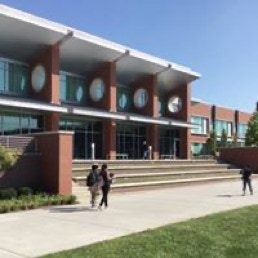Study Tips
As a student, you can do many things to help yourself learn more effectively. A number of suggestions follow:
- Pre-expose yourself to a new topic 2-4 weeks before studying it by briefly looking over the chapter in the textbook, watching a video on the topic, etc.
- Before beginning a new topic, briefly review previous topics studied in order to activate prior learning.
- Begin studying a topic by getting the big picture. Read the learning objectives for a chapter. Next, go to the back of the chapter and read the chapter summary.
- After you have the big picture in mind, learn the details. Read the chapter with a highlighter in hand.
- After reading the chapter, begin an elaboration process with the material. You can do this by completing course assignments, taking self-tests and quizzes, discussing the content with others (teaching the material to a friend), attending the lecture corresponding to the topic, outlining or making a concept map of the chapter, keeping a journal of new things you have learned, reviewing correlated PowerPoints or study notes, etc. If possible, try to incorporate mnemonic techniques to more easily learn key concepts.
- Once you have carefully looked at both the big and detailed picture for the topic, review the topic after 2 days and again after a week has passed. Continue to review the topic once a week.
- While doing the above, don’t forget to take some time off every 20 minutes. Take a walk, exercise, do some deep breathing, or drink some water. Your brain needs some down time.
- If you begin to feel sleepy, try the following:
- Do some cross-lateral exercises.
- Listen to some upbeat music.
- Try aromatherapy. Peppermint, lemon, cinnamon, basil, and rosemary should help you become mentally alert.
- Take advantage of the following learning helps:
- Drink plenty of water. Keep a bottle of water with you while studying.
- Use music to bolster your efforts. When studying content for the first time, listen to classical music. Baroque music is good when reviewing. During the elaboration process, generate your own songs concerning the topic. Energize your thinking by listening to exciting music such as a movie theme or the Olympic fanfare before you begin your learning session.
- Read aloud some positive affirmations before beginning a session.
- Set short-term and long-term learning goals. Celebrate your successes.
- Take vitamins and minerals. Eat good sources of protein: eggs, fish, poultry, pork, and yogurt.
- Participate in regular, energetic physical activity.
- Get plenty of sleep.
- Create a daily study routine and ritual.
- Make sure your study area has the proper lighting. Vitalite full-spectrum lighting (soft, natural) is ideal.
- See that your study area has plants. Plants can remove air pollutants, increase negative ionization in the atmosphere, and increase indoor oxygen. Productivity can be increased as a result. One plant can affect 100 square feet of floor space.
- If possible, add negative ions into your environment with an ionizer or some other device.
(The above suggestions come from Eric Jensen’s book, Brain-Based Learning, Jensen, E. P. (2000). Brain-based learning: the new science of teaching & learning. San Diego: The Brain Store.)



